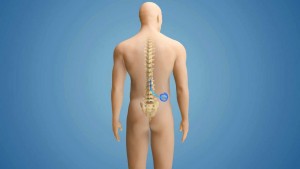
New Multiple Sclerosis Treatment
Studies funded by the Multiple Sclerosis Society [1] have made what could be a promising development in the treatment of MS. Dr Raju Kapoor [2] and his team at University College London published the results of their study in the Lancet [3] a couple of weeks ago, leading to excitement over what these findings could mean for the future of MS treatment. MS is a condition which causes a good deal of suffering so, while these results do not, perhaps, suggest a complete cure, they may well help to improve the quality of life of sufferers.
What Is MS?
Multiple Sclerosis is a condition which attacks the central nervous system. Just like electrical cables, the nerves in our body are protected by ‘insulation’. This insulation comes in the form of a coating known as the ‘myelin sheath’. For reasons as yet unknown [4], the immune systems of people with MS mistakenly attack the myelin sheath. Just as when the insulation on your electric cables gets worn and your electrical goods start to malfunction, this means that signals travelling along affected nerves get disrupted. The symptoms of the disease vary considerably depending upon which nerves are affected. However, it can be an intensely painful and life-altering condition.
Many people affected will suffer from reduced mobility, weakness, and dizzy spells. They may also experience mood swings – partly as a result of the disease itself, and partly as a result of the frustrating pain and stress which it brings in its wake [5]. Though the condition can sometimes be managed for many years with treatment, there is as yet no cure, and sufferers may lead very uncomfortable lives.
Potential New Treatment
The research done by Dr Kapoor and the UCL team could have great implications for the management of this painful condition. Dr Kapoor and his team took a sample of 86 people affected with optic neuritis – a type of MS affecting the optic nerve – and tested them (in a placebo-controlled manner) by attempting to block sodium ions from entering their nerve cells. Sodium induced nerve damage is thought to be a major contributor to the symptoms of MS, so researchers were hopeful that blocking sodium within the nerves could at the very least reduce symptoms and prolong the quality of life of MS sufferers. When trialled, the results showed that those MS sufferers who underwent the true experiment experienced 30% less damage to their nerve fibres over the trial period than those who underwent the placebo experiment. This indicates that such methods could help to slow the course of progressive MS, and make life a lot easier for sufferers.
Moving Forward
Encouraging though these results are, these are still very early days. It will take a while (and a lot more testing) before any treatment based upon these results can be dispensed to patients. Much of the operation of MS still remains a mystery – and the less we know about what causes and perpetuates it, the less information we have to work with when finding a cure. Nonetheless, these results represent a great step forward, and one which could potentially bring comfort and relief to many people currently suffering from this nasty illness. There are also plenty of other avenues of research always being explored, as well as methods to make the lives of MS sufferers easier, and campaigns to reduce any ignorance and stigma which may affect people who suffer from it. Scientists are hopeful that we can at the very least bring the quality of MS sufferers’ lives to normal or near normal levels over the next decade or so – and a great breakthrough regarding cause and cure can surely not be far off [6]!
[1] MS Society, “Promising trial could lead to new type of MS treatment”, Jan 2016
[2] UCLH, “Dr Raju Kapoor”
[3] Rhian Raftopoulos, Simon J Hickman, Ahmed Toosy, Basil Sharrack, Shahrukh Mallik, David Paling, Daniel R Altmann, Marios C Yiannakas, Prasad Malladi, Rose Sheridan, Ptolemaios G Sarrigiannis, Nigel Hoggard, Martin Koltzenburg, Claudia A M Gandini Wheeler-Kingshott, Klaus Schmierer, Gavin Giovannoni, David H Miller, Dr Raju Kapoor, “Phenytoin for neuroprotection in patients with acute optic neuritis: a randomized, placebo-controlled phase 2 trial”, The Lancet Neurology, Jan 2016
[4] NHS, “Multiple Sclerosis – Causes”
[5] PsychGuides, “Anger Symptoms, Causes and Effects”
[6] Sarah Knapton, “‘Miracle’ stem cell therapy reverses multiple sclerosis”, The Telegraph, Mar 2015




